
Rosemary, Rosmarinus officinalis is a common herb that belongs to the Lamiaceae family of plants. This family is also sometimes called the mint, deadnettle, or sage family. Many of the members of this plant family, just like the rosemary plant, are aromatic herbs used widely in cooking. Other members of this plant family include basil, catnip, lavender, marjoram, mint, oregano, sage, and thyme, just to name several. Rosemary is a common addition to home herb gardens. This may lead you to wonder if it’s safe for your cat to eat.
Rest assured, according to the ASPCA animal poison control, rosemary is non-toxic to cats, as well as to dogs and to horses. There are members of the Lamiaceae family that the ASPCA lists as toxic to cats. These include, surprisingly, catnip, lavender, marjoram, mint, and oregano. The symptoms of toxicity of these all include gastrointestinal upset, such as vomiting, diarrhea, and a decreased appetite. Non-toxic members of the Lamiaceae plant family include basil, candle plant, prostrate coleus, sage, both summer and winter savory, Swedish ivy, and thyme.
While rosemary is listed as non-toxic, you shouldn’t let your cat munch on it uninhibited. Rosemary contains a variety of volatile oils including monoterpene, hydrocarbons, camphene, limonene, camphor, borneal, cineole, linalool, and verbinol. These oils, if consumed in a large enough quantity, can cause vomiting, diarrhea, and other GI signs. That being said, most cats won’t eat enough rosemary to cause any discomfort. Rather, they may give a curious nibble or two.
If your cat does decide to eat a large amount of rosemary, even though it’s technically not considered to be toxic you should monitor your cat closely for any GI signs. These can be things as blatant as vomiting, diarrhea, or inappetence. More subtle signs of GI discomfort can include the non-specific symptom of lethargy or just laying around more and not acting like themselves. If you do see any of these symptoms, seek veterinary care.
In animal studies, rosemary has been shown to help conventional therapies for cardiac conditions such as hypertrophy or decreased function. However, these have been limited rat studies, so we don't seem to have any reputable evidence to definitely say that rosemary has health benefits for cats.
Essential oils are toxic to cats and should not be used topically or aromatically around them. Rosemary essential oil should never be applied to your cat as they can easily groom the oil off of them and ingest it. Not only can ingesting rosemary essential oil cause vomiting and diarrhea, but the ultra-concentrated oils being ingested can cause depression of the central nervous system. This can cause a drop in heart and respiratory rate and can even cause seizures.
Essential oil diffusers work by aerosolizing the concentrated oils but were your cat to inhale these aerosolized oils, this can cause respiratory tract irritation as well as vomiting and diarrhea. Signs of respiratory tract irritation can include a watery nose and eyes, drooling, and difficulty breathing.

Exploring the Different Types of Pet-Friendly Beaches
Are you looking for pet-friendly beaches? Learn about the different types of pet-friendly beaches, their locations, and tips for visiting them with your pet.
Exploring Pet-Friendly Wineries: Types, Locations, and More
Discover the different types of pet-friendly wineries, where to find them, and what to expect when you visit. Learn more with The Spruce Pets.
Why Is My Dog’s Eye Swollen?
If your dog's eye is swollen, she may need veterinary attention. The inflammation could be caused by allergies, an injury, or even a tumor.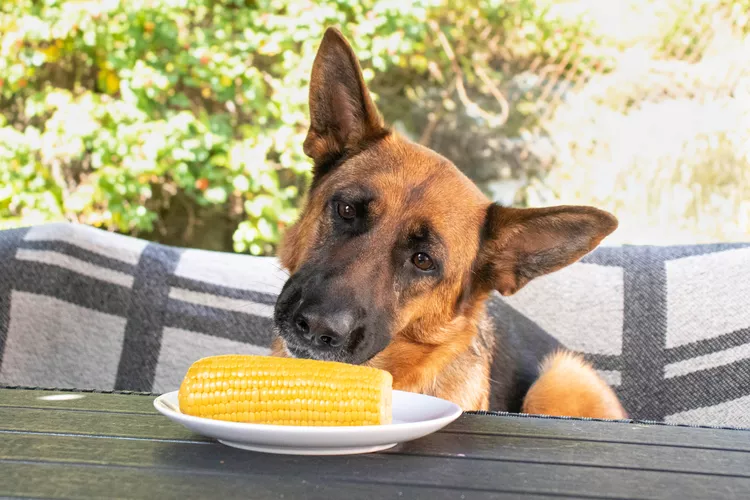
Can Dogs Eat Corn on the Cob?
Dogs love chewing on corn cobs, but this can cause serious harm. Learn about the dangers of corn cobs and find out what to do if your dog eats one.
Can Dogs Eat Papaya? What to Know About Sharing This Tropical Fruit With Your Pup
Papaya is safe for dogs in moderation, and it can even provide some nutritional value for them. However, too much can cause digestive upset, and it's not suitable to share with dogs with certain health conditions.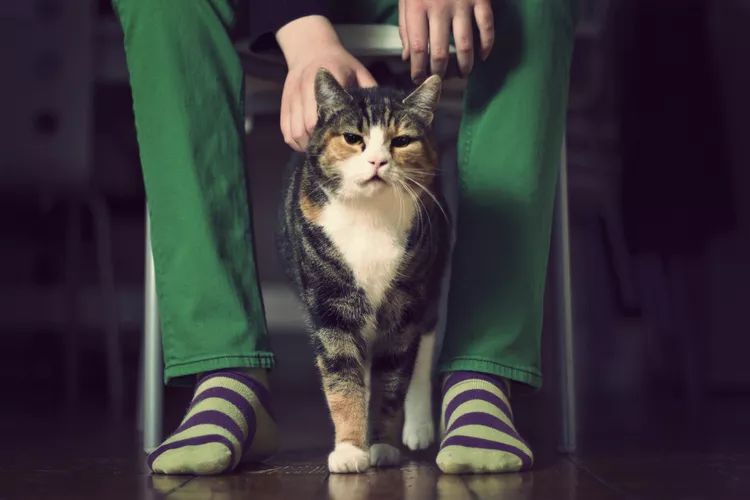
65 Irish Cat Names
Irish cat names can pay homage to historical places, local cuisine, famous Irish actors and musicians, or other wonderful aspects of the Emerald Isle.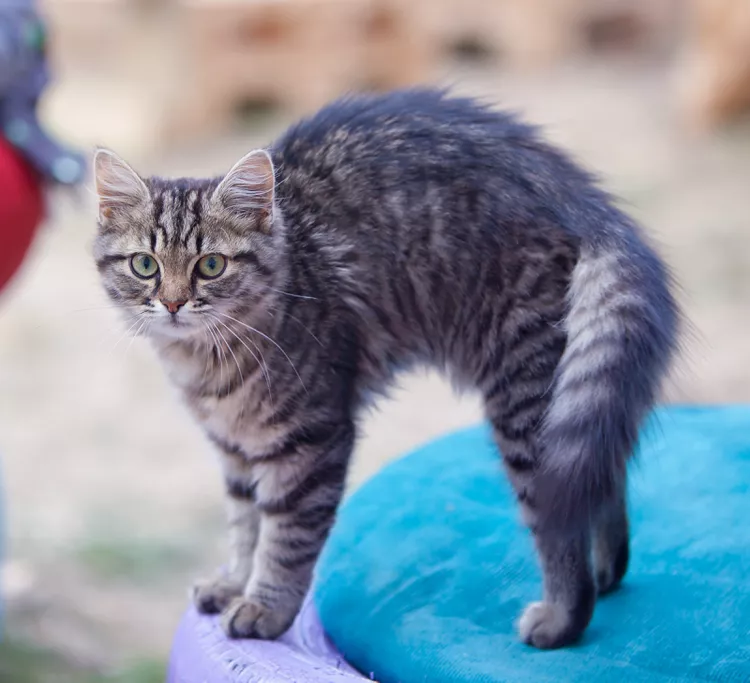
Feline Hyperesthesia Syndrome (FHS) in Cats
Rippling skin is more than dermal sensitivity in cats. It can be a sign of Feline Hyperesthesia Syndrome. Learn the causes, treatment, and prevention.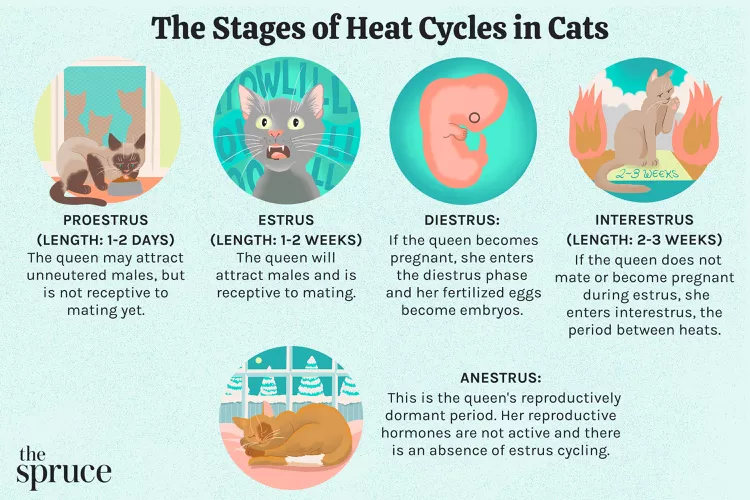
How Long Are Cats in Heat?
How long are cats in heat? Learn about the heat cycles of cats, also called estrus, as well as the reasons you should spay your cat.
Can Dogs Eat Raw Chicken Feet?
What are the potential health benefits of chicken feet for dogs? What are the risks?
Is Eucalyptus Safe for Cats?
Many products containing eucalyptus are not safe for cats, and it is important to be aware of the risks to your cat.
What You Need to Know About Homemade Cat Food
If you want to cook for your cat, make sure to read about the risks associated with homemade diets for cats
Can Cats Eat Peanut Butter?
Peanut butter is not toxic to cats, but it might not be the best choice of treat for them.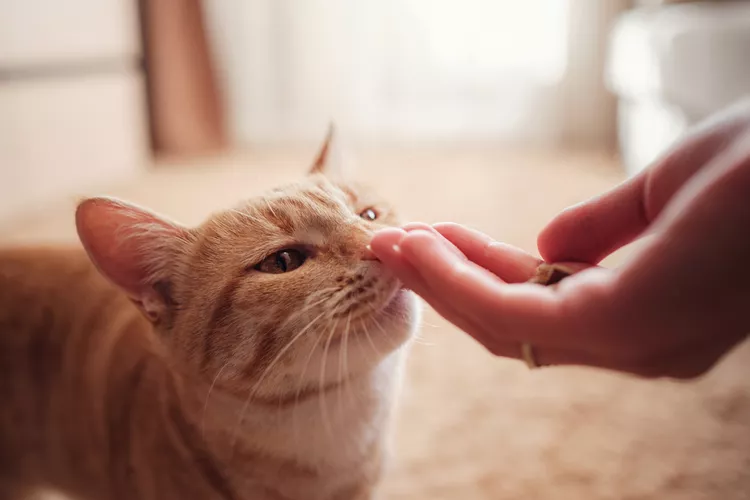
Can Cats Eat Cheese?
Can cats eat cheese? Is it healthy for them? How much can they eat and what should you do if you fear your cat has eaten too much cheese?
8 Flat-Faced Cats with the Cutest Smooshed Faces
These flat-faced cat breeds have a distinct and adorable appearance. Learn about their origins and traits, and the potential health risks tied to their unique facial structures.
Pictures and Facts About Bengal Cats and Kittens
Bengal cats are a cross between wild cats and domestic cats. Learn more about what they look like and pictures of this beautiful spotted breed.
Top 10 Big House Cats
Larger cat breeds, like Maine coons and savannahs, deserve just as much love as their petite counterparts. These big house cats tip the scales.
Cairn Terrier: Dog Breed Characteristics & Care
The cairn terrier is a spunky, affectionate, and intelligent dog from Scotland. The breed became famous when one played Toto in The Wizard of Oz. Learn about the temperament, history, health, and care needs of the cairn terrier dog breed.
Reasons Why Dogs Grind Their Teeth
Some dogs grind their teeth. Learn why dogs grind their teeth and if it can be harmful. Find out what to do about teeth grinding in dogs.
This Is Why Some Dogs Lean on People
Certain dogs really love leaning on their humans. What does this mean? Find out why dogs lean on people and if this is ever a problem.
Can Dogs Get Depression? How to Help Your Sad Dog
Can dogs get depression? Learn about the signs of depression in dogs and find out how to help your sad dog.